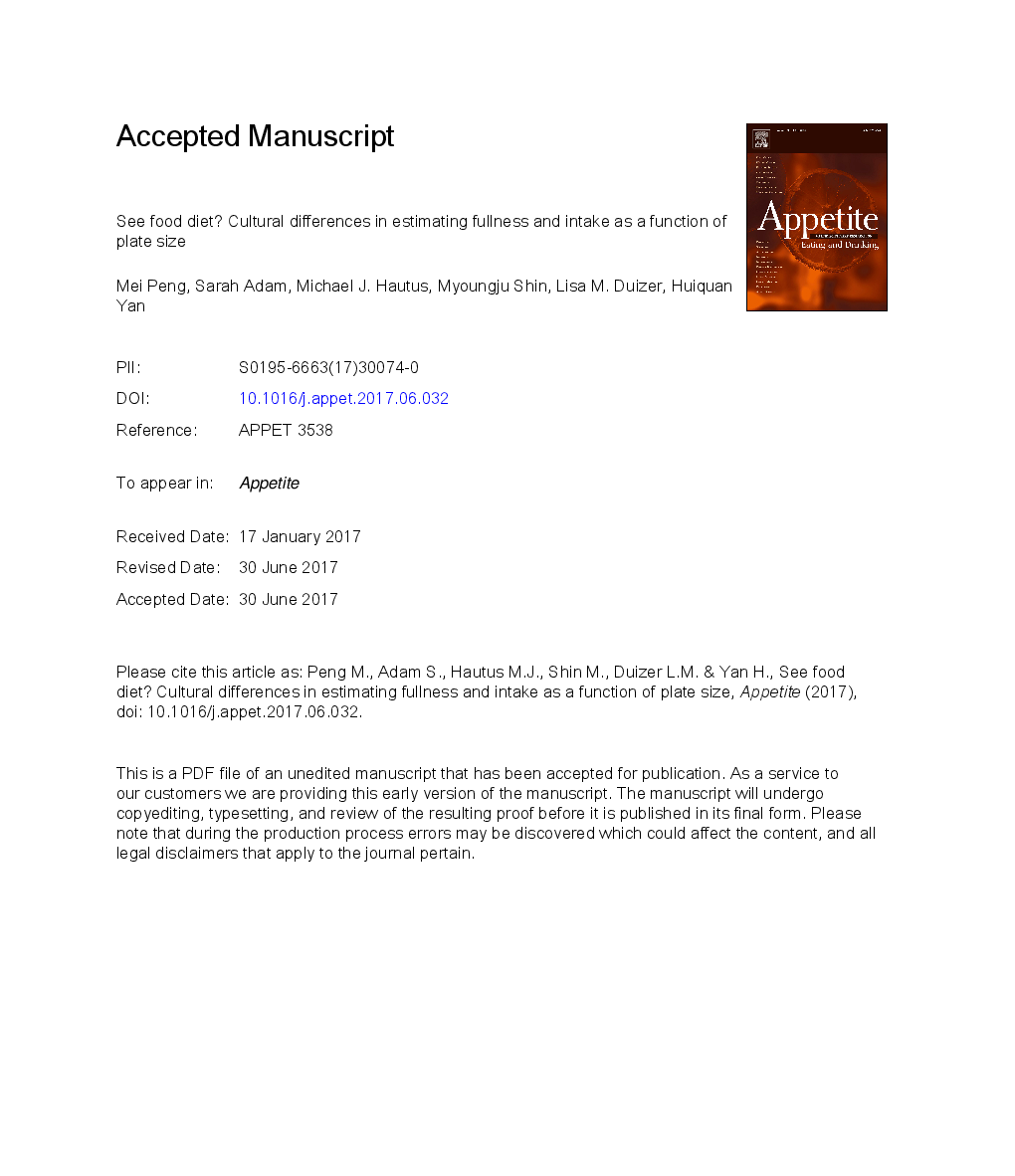ترجمه فارسی عنوان مقاله
رژیم غذایی را ببینید؟ تفاوت های فرهنگی در برآورد کامل بودن و مصرف به عنوان تابعی از اندازه صفحه
عنوان انگلیسی
See food diet? Cultural differences in estimating fullness and intake as a function of plate size
| کد مقاله | سال انتشار | تعداد صفحات مقاله انگلیسی |
|---|---|---|
| 144673 | 2017 | 16 صفحه PDF |
منبع

Publisher : Elsevier - Science Direct (الزویر - ساینس دایرکت)
Journal : Appetite, Volume 117, 1 October 2017, Pages 197-202
ترجمه کلمات کلیدی
مقایسه کشور اثر اندازه صفحات، شایستگی انتظار، مصرف تخمینی، ادراک اندازه قطعه،
کلمات کلیدی انگلیسی
Cross-country comparison; Plate size effect; Expected fullness; Estimated intake; Portion-size perception;

